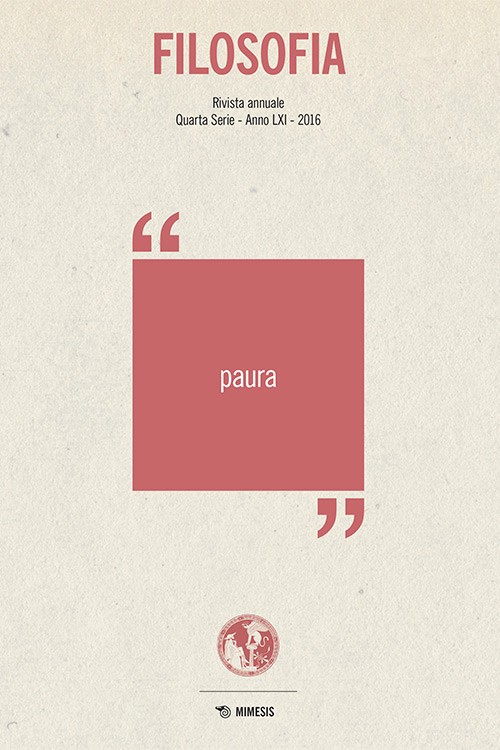Verso la libertà dello spirito: la paura come motore dialettico nella filosofia di Hegel
DOI:
https://doi.org/10.13135/2704-8195/3921Parole chiave:
Hegel, emotion, fear, master-servant, terrorAbstract
Thanks to the contribution of psychology and neurosciences, contemporary philosophy highlights the role emotions play in the formation of subjectivity. This paper investigates the Hegelian conception of fear, believing in its constitutive role in the emergence of self-consciousness. From an analysis of the situations that engender this feeling, emerges that Hegel considers fear a dialectic driving force that leads spirit along the path to freedom. Already in the Frankfurt fragments, love, accompanied by fear, eliminates the separations between the lovers’ subjectivities. However, it is in the Phenomenology of Spirit that the main discussion over fear takes place. In the master-servant relationship, fear shakes the servant allowing him to become free. Similarly, the experience of revolutionary terror shows that fear, experienced and not removed from the spirit’s way, represents the dialectic driving force for the achievement of the spirit’s freedom.
Downloads
##submission.downloads##
Come citare
Fascicolo
Sezione
Licenza
Filosofia applica una licenza Creative Commons Attribution 4.0 International License a tutto il materiale pubblicato.



